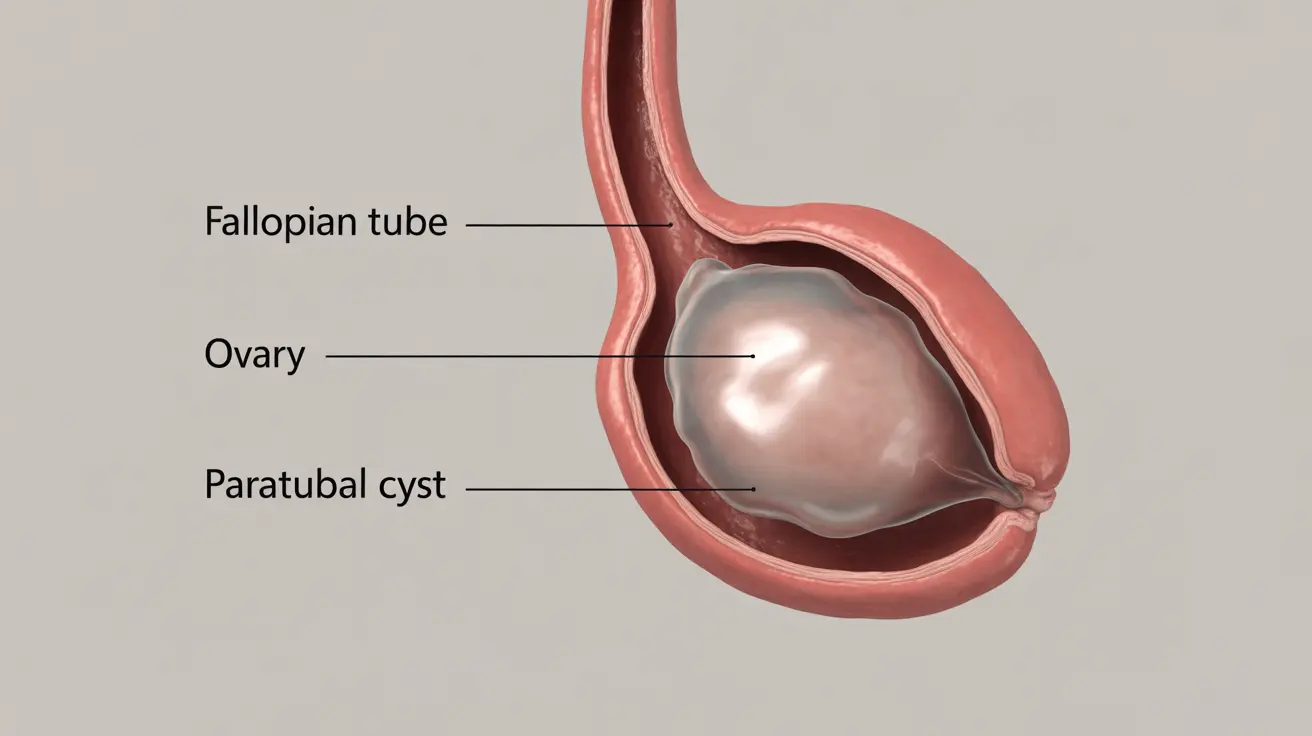A paratubal cyst is a fluid-filled sac that develops near the fallopian tubes, specifically in the broad ligament between the ovary and fallopian tube. While these cysts are generally benign, understanding their symptoms, potential complications, and treatment options is crucial for anyone concerned about their reproductive health.
These cysts, also known as hydatids of Morgagni, are relatively common in women of reproductive age. While many paratubal cysts are asymptomatic and discovered incidentally during routine pelvic examinations, some can cause discomfort and require medical attention.
What Are Paratubal Cysts?
Paratubal cysts develop from embryonic remnants near the fallopian tubes. They typically range in size from a few millimeters to several centimeters and can occur on either side of the reproductive system. Unlike ovarian cysts, paratubal cysts are separate from the ovary itself, though they're located in close proximity.
Signs and Symptoms
Many women with paratubal cysts experience no symptoms at all. However, when symptoms do occur, they may include:
- Pelvic pain or pressure
- Lower abdominal discomfort
- Pain during intercourse
- Irregular menstrual cycles
- Bloating or fullness in the lower abdomen
Diagnosis Methods
Healthcare providers typically diagnose paratubal cysts through several methods:
Physical Examination
A routine pelvic exam may reveal abnormalities that suggest the presence of a cyst.
Imaging Tests
Common diagnostic tools include:
- Transvaginal ultrasound
- Pelvic ultrasound
- CT scan (in some cases)
- MRI (for complex cases)
Treatment Approaches
Treatment for paratubal cysts varies depending on several factors, including size, symptoms, and potential complications. Options include:
Watchful Waiting
Small, asymptomatic cysts often require no immediate treatment but should be monitored regularly through ultrasound.
Surgical Intervention
Surgery may be necessary when cysts:
- Cause significant pain or discomfort
- Grow larger over time
- Show suspicious features
- Present risk of complications
Potential Complications
While most paratubal cysts are harmless, some potential complications can occur:
- Torsion (twisting of the cyst)
- Rupture
- Infection
- Pressure on surrounding organs
Prevention and Management
While paratubal cysts cannot always be prevented, regular gynecological check-ups can help detect them early. Maintaining overall reproductive health through regular medical visits and prompt attention to unusual symptoms is essential.
Frequently Asked Questions
1. What are the common symptoms of a paratubal cyst and how can I tell if I have one? Most paratubal cysts are asymptomatic, but some women may experience pelvic pain, pressure, or discomfort. Only a medical examination and imaging tests can confirm the presence of a paratubal cyst.
2. How is a paratubal cyst diagnosed and what imaging tests are used? Diagnosis typically involves a pelvic examination followed by imaging tests, primarily transvaginal or pelvic ultrasound. In some cases, CT scans or MRI may be necessary for detailed evaluation.
3. When is surgery needed to treat a paratubal cyst and what are the treatment options? Surgery is typically recommended for large cysts, those causing symptoms, or when complications are present. Treatment options include laparoscopic removal or traditional open surgery, depending on the cyst's size and location.
4. Can a paratubal cyst cause complications like torsion or rupture, and what symptoms should raise concern? Yes, paratubal cysts can cause complications like torsion or rupture. Sudden severe pain, fever, vomiting, or significant changes in symptoms should prompt immediate medical attention.
5. Are paratubal cysts likely to affect fertility or become cancerous? Paratubal cysts rarely affect fertility and are typically benign. However, large cysts or complications may require treatment to prevent potential impact on reproductive health. The risk of malignancy is very low.




